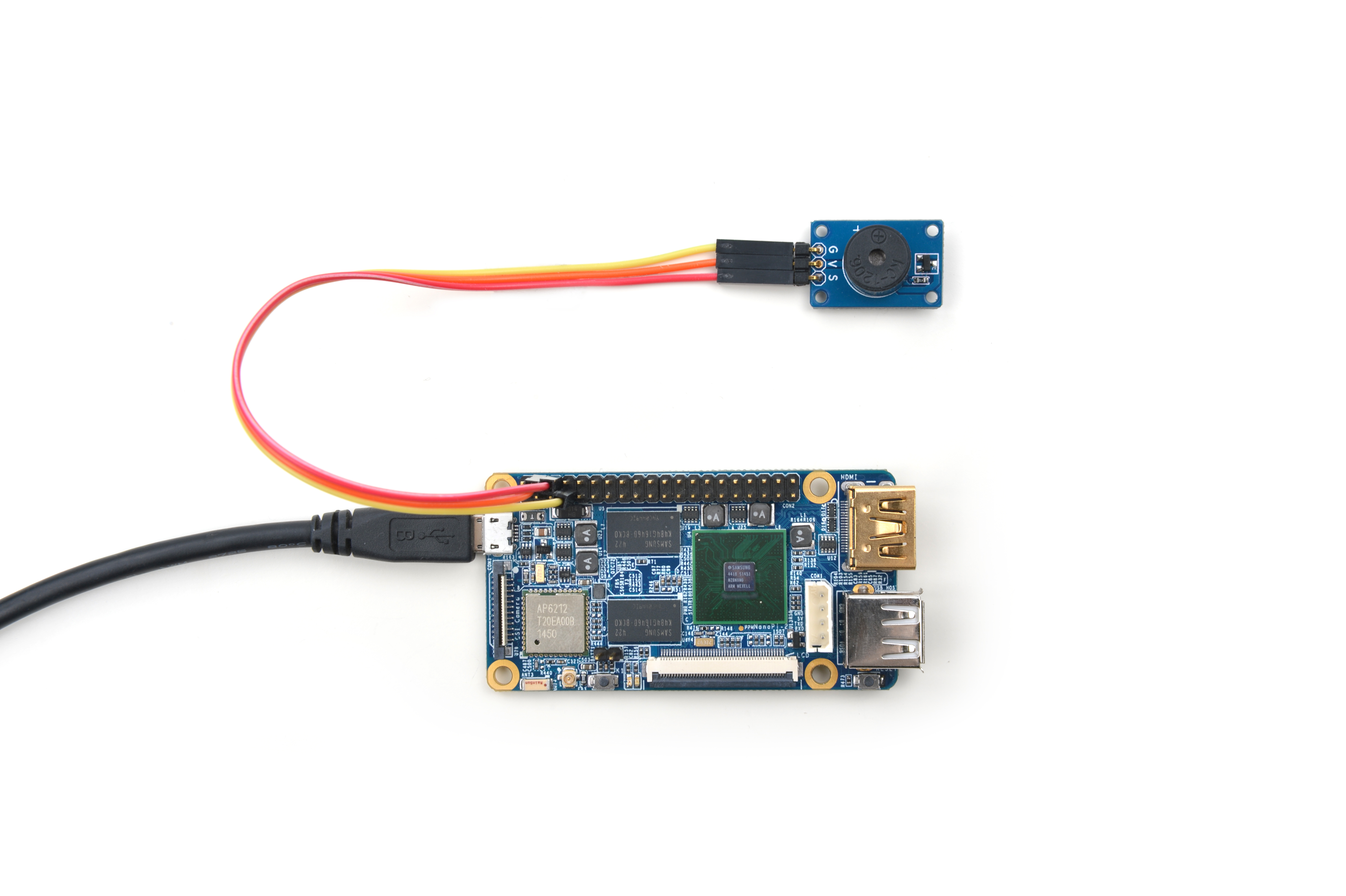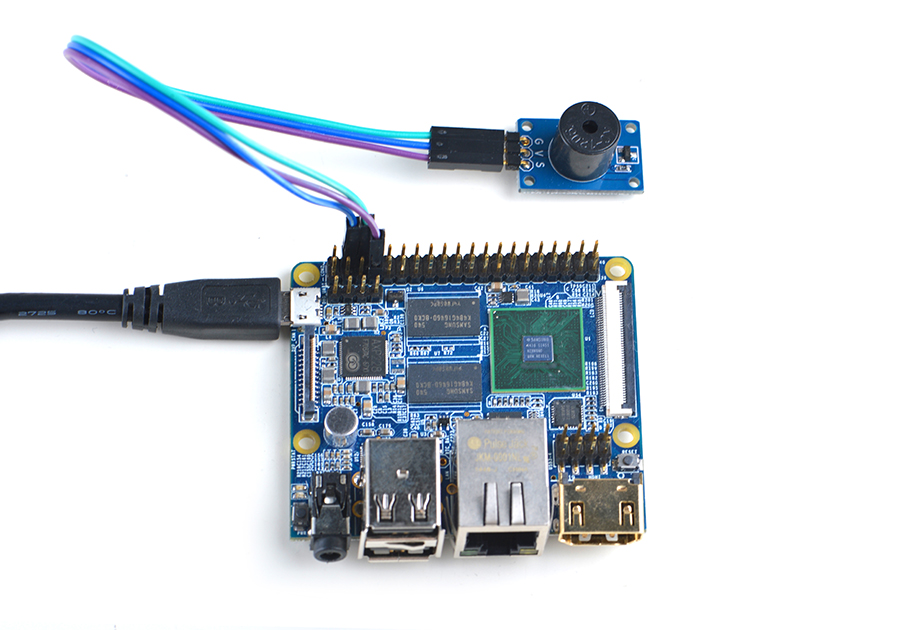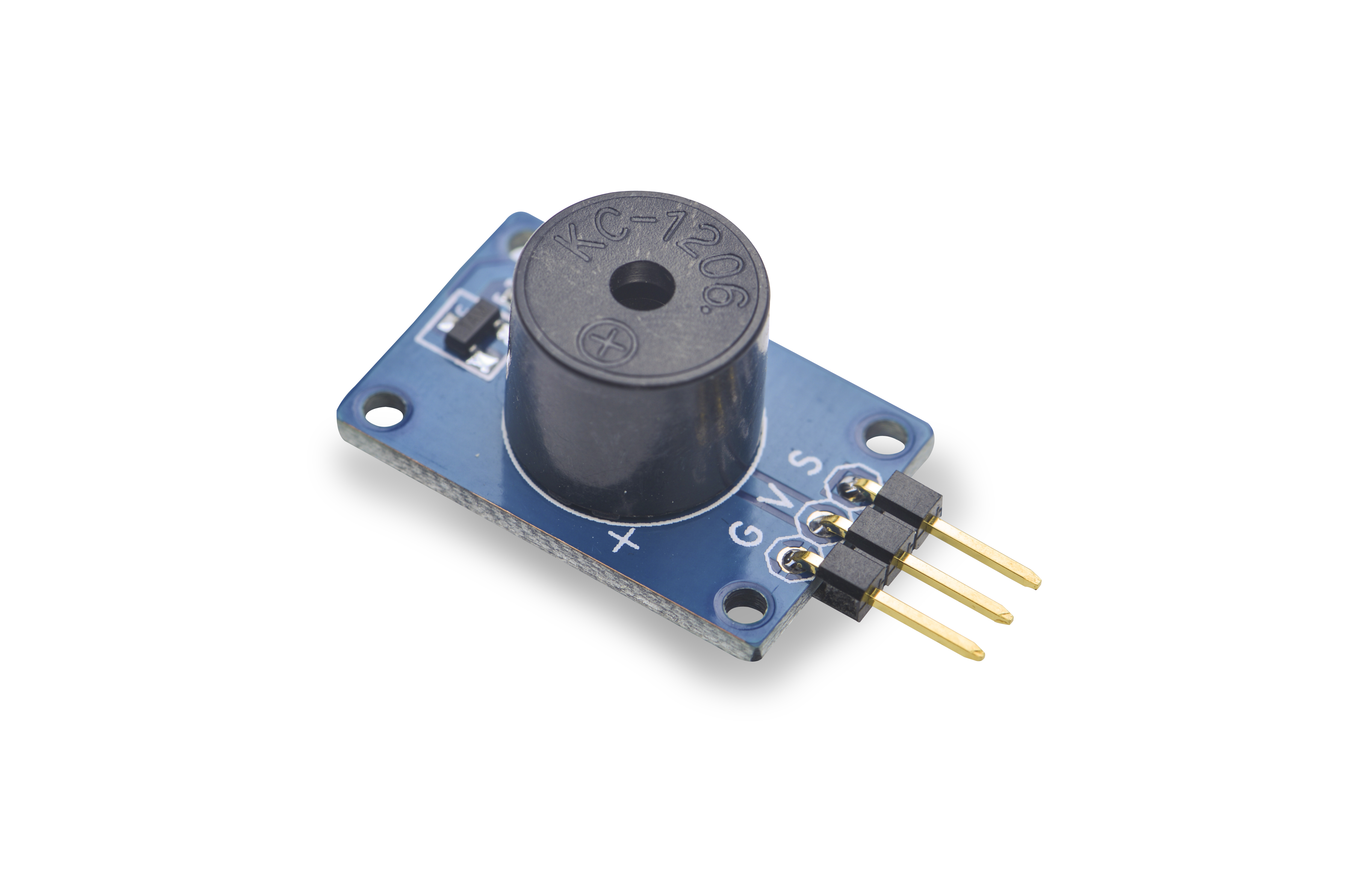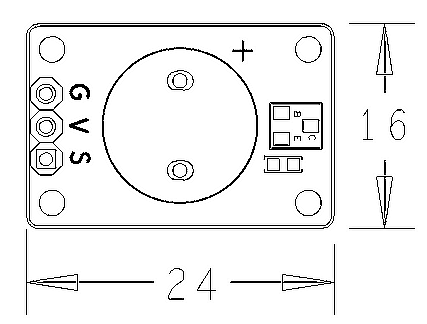Matrix - Buzzer
Contents
1 Introduction
- The Matrix-Buzzer is a passive buzzer. To drive this buzzer an oscillating source generating 2K - 5K square waves is needed.
- It can be used in electronic devices that need sound generators.
2 Features
- 3 PIN interface
- PCB dimension (mm): 16 x 24
- Pin Description:
| Pin | Description |
| V | Supply Voltage 5V |
| G | Ground |
| S | PWM Input |
3 Basic Device Operation
A passive buzzer will not tweet if DC signals are used; instead, you need to use square waves whose frequency is between 2K and 5K to drive it. If you use GPIO signals to drive it you need to pull the GPIO high first and then low to generate oscillation. The oscillation frequency is generated by the time in which GPIO signals turn from high to low. The buzzer will generate different sounds based on different frequencies.
4 Applications
4.1 Connect to NanoPi 2
Please refer to the following connection diagram to connect the module to the NanoPi M1

Connection Details:
| Matrix-Buzzer | NanoPi 2 |
| G | Pin6 |
| V | Pin4 |
| S | Pin22 |
4.2 Connect to NanoPi M2 / NanoPi 2 Fire
Please refer to the following connection diagram to connect the module to the NanoPi M2/ NanoPi 2 Fire:

Connection Details:
| Matrix-Buzzer | NanoPi M2 |
| G | Pin6 |
| V | Pin4 |
| S | Pin12 |
4.3 Connect to NanoPC-T2
Please refer to the following connection diagram to connect the module to the NanoPC-T2:
Matrix-Buzzer_nanopc_t2
Connection Details:
| Matrix-Buzzer | NanoPC-T2 |
| S | Pin23 |
| V | Pin29 |
| G | Pin30 |
5 Compile & Run Test Program
Boot your ARM board with Debian and copy the matrix code:
$ apt-get update && apt-get install git $ git clone https://github.com/friendlyarm/matrix.git
If your cloning is done successfully a "matrix" directory will be generated.
Compile and install Matrix:
$ cd matrix $ make && make install
Run test program:
$ matrix-pwmNote: this module is not plug and play therefore before running the module please make sure it is connected to an ARM board.
Here is what you should observe:
Using default config: channel=0 freq=1000Hz duty=500 Press enter to stop PWM
可以听到蜂鸣器鸣叫,占空比的范围为0-1000,键盘敲入回车键停止pwm输出。
6 代码说明
所有的开发板都共用一套Matrix代码,本模块的测试示例代码为matrix-pwm,内容如下:
int main(int argc, char ** argv) { int Hz, duty, board; if ((board = boardInit()) < 0) { printf("Fail to init board\n"); return -1; } system("modprobe "DRIVER_MODULE); signal(SIGINT, intHandler); if (argc == 4) { // Usage:matrix-pwm channel freq duty[0~1000] pwm = atoi(argv[1]); Hz = atoi(argv[2]); duty = atoi(argv[3]); } else { Hz = 1000; duty = 500; printf("Using default config: channel=%d freq=%dHz duty=%d\n", pwm, Hz, duty); } if (PWMPlay(pwm, Hz, duty) == -1) { printf("Fail to output PWM\n"); } printf("Press enter to stop PWM\n"); getchar(); PWMStop(pwm); system("rmmod "DRIVER_MODULE); return 0; }
API说明参考维基:Matrix API reference manual
7 Resources
8 Update Log
8.1 Feb-23-2016
- Added the description for "NanoPi 2 branch" in Section 4
- Added Section 5: Connect to NanoPi 2

